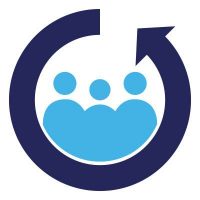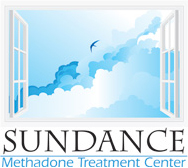Cornell Interventions
Drug Rehab Center in Chicago, Illinois
- Opioid Addiction
- Alcoholism
Cornell Interventions offers specialized interventions for alcohol and opioid addiction through a range of therapeutic approaches tailored to the unique needs of each individual.
About Cornell Interventions in Illinois
Cornell Interventions provides expert services in the Chicago, IL area for those struggling with alcohol abuse and opioid addiction. With its comprehensive range of intervention treatments, Cornell Interventions helps guide individuals and their families toward a healthier lifestyle. The center understands the pressurized situation faced by those struggling with addiction, and tailors its care to the unique needs of each individual seeking help.
Cornell Interventions utilizes a range of therapeutic approaches, including family therapy, individual therapy, and group therapy. Each of these methods are utilized to create an atmosphere of understanding and trust, wherein individuals can feel completely safe discussing their issues and concerns. Furthermore, Cornell Interventions team of skilled addiction specialists provide compassionate and empowering support and advice, helping those in need to create an individualized recovery plan that works for them.
Genders
Ages
Modality
Additional
Conditions and Issues Treated
Opioids are a group of drugs that include substances such as heroin, morphine, and oxycodone. These drugs activate opioid receptors in the brain, which produce pleasurable feelings. Opioid addiction occurs when drugs are abused at increasing rates or increasing amounts because the body becomes tolerant of them.
Opioid addiction is typically diagnosed when drug abuse becomes a typical behavior that interferes with an individual’s ability to function daily. The use of the substance results in consequences like legal problems.
Treatment for opioid addiction varies depending on each individual’s needs. Some treatments focus on replacing opioids with other drugs that have similar effects of reducing withdrawal symptoms. Other treatments aim to reduce the risk of relapse by providing psychological support or using more natural methods.
Levels of Care Offered
This center offers a variety of custom treatment tailored to individual recovery. Currently available are Intervention, with additional therapies available as listed below.
Interventions help families and friends express their feelings, express their desire for change, and plan for action. Interventionists are trained professionals who help family members plan or lead interventions. Family members should help choose an experienced professional to guide their loved one through treatment. Across the country, intervention services are available.
Therapies & Programs
During individual therapy at Cornell Interventions in , the person in recovery meets with a therapist one on one to go over their situation and learn from past mistakes. The counselor or therapist will use this time to address the causes of addiction, triggers, and any mental issue or dual diagnosis. They will also address aftercare plans, giving them the best chances of long-term sobriety.
This therapeutic process is very intense and challenging to go through. Some clients may find it easier to open up with someone apart from their family or loved ones who understand their struggles and experience with addiction.
Family therapy is designed to help addicts get clean and sober by using what they love the most; their family. Most drug treatment centers make it mandatory that the addict’s family attend therapy sessions, which is great because having everyone there to support them makes it much easier for them to get clean. Not only are they surrounded by people who want them to get better, but everyone is there because they want the best for them, not because they feel like they have to be.
Drug addicts are often surrounded by resentful or uneducated family members who would, at times, rather see them stay addicted because it makes their own lives easier. Sometimes they don’t understand what the addiction is or how they play a part in it. They know that during and after the addict’s sobriety journey, they will face challenges and changes that they aren’t sure how to handle. This can be very tough for an addict to go through on their own, which is why it’s so important that they have the support of their family. Just because someone is an addict does not mean that they don’t deserve the love and support of those around them.
Addicts in Chicago, IL can find support in group therapy at Cornell Interventions by finding peers who understand their situation and being held accountable. They also learn to develop faith, understanding, and insight into their addiction through shared conversations.
Group Therapy is employed by drug treatment centers to provide the recovering addict with a platform to talk about their feelings and experiences. It also provides for an opportunity to learn from other addicts who have successfully overcome their addiction. It is recommended that all group members be recovering addicts for this type of therapy to work.
Additional Details
Specifics, location, and helpful extra information.
Chicago, Illinois 60607 Phone Number(773) 525-3250 Meta DetailsUpdated November 25, 2023
Staff Verified
Cornell Interventions Patient Reviews
There are no reviews yet. Be the first one to write one.
Chicago, Illinois Addiction Information
In 2016, more than 2,350 Illinoisans died from drug overdoses. More than 5,500 deaths annually occur in Illinois due to the abuse of alcohol and other drugs. 7.17% of Illinois residents reported using illicit drugs in the past month (2018). Substance abuse costs the state approximately $3.5 billion every year.
Drug misuse can lead to other serious health problems, including HIV/AIDS or hepatitis C infection and liver disease. Chicago's main drugs of abuse include heroin, cocaine, and methamphetamine. Field sobriety tests can be used to determine if someone is driving under the influence of drugs or alcohol. There are about 872 drug treatment centers in the city, and the number of people seeking help for addiction continues to rise.
Treatment in Nearby Cities
- McHenry, IL (42.3 mi.)
- Palos Hills, IL (18.6 mi.)
- Vienna, IL (319.4 mi.)
- Jerseyville, IL (240.3 mi.)
- Kewanee, IL (127.2 mi.)
Centers near Cornell Interventions




The facility name, logo and brand are the property and registered trademarks of Cornell Interventions, and are being used for identification and informational purposes only. Use of these names, logos and brands shall not imply endorsement. RehabNow.org is not affiliated with or sponsored by Cornell Interventions.

